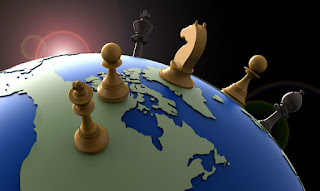Past Facebook posts. Not updated.
OIL and natural gas companies will continue, exponentially earning. Especially that these giants are owned by private corporations. Same with the oil-rich Middle East. Nonstop. In fact, even as the war in Ukraine continues and sanctions on Russia are imposed by the U.S. and most of Europe, energy resource deals are ongoing.
News on 3/31/2022: “OPEC and Russia are set to meet as the war continues to roil the oil market.” Big producers seem to be sticking to modest output raises and alliance with Russia. No brainer why the Middle East didn’t join the U.S./E.U. collective whip versus Moscow for the invasion. Although war, especially prolonged war, is mostly bad for energy business or business per se. Except for the merchants of war, of course.
Meantime, in America: “Biden will tap oil reserves, hoping to push gasoline prices down.” The plan would mean release of crude reserves daily for six months—or up to 180 million barrels in all, over 180 days, aimed at helping “ease prices at the pump.” The price per gallon hasn’t really moved in about 2 weeks since the start of Ukraine tempest on Feb 24: At around $4 average.
I am not an economist, and definitely, I am no oil price expert. So I wonder out loud: By tapping U.S. oil reserves, it’d mean lower gas prices? Let’s see and that’d be awesome. But then, fact is, the U.S. is already #1 in oil production globally since 2016. Yet we still import oil/crude oil from 73 countries. Russia was #4 U.S. importer before Vladimir Putin got infuriated and earned a sanction. Yet even if we kick Moscow out, doesn’t America already have lotsa oil?
Or this is the rationale post-Ukraine War (please let it end) because the end has just justified the means? Now let’s wait and see if gasoline cost/s per gallon go down to 2019 levels or at least the 7.9 inflation rate is cut in half. ⛽️⚓️⛽️
At the time that I typed this post up, gasoline cost per gallon was at $4.22 average. Remember, it was $2.41 in 2017; $2.74 in 2018; $2.60 in 2019; $2.17 in 2020. On Bidentime, in 2021: #3.15, the lowest cost.
Sure, Saudi Arabia and Russia are wrestling for price. OPEC and U.S. are pretty much in the thick of the market haggling as well. No brainer since the U.S. and Saudi Arabia/Russia are #1 and #2 (#3) in oil production and oil export.
Yet look at South America’s average: Below a dollar. Oil-rich Middle East, a bit higher than in Brazil, Colombia, Venezuela et al but still below 1 dollar. Russia, amidst war? $2.10. (Add info: Moscow’s oil industry is state-owned. All oil trunk pipelines, except Caspian Pipeline Consortium, are owned and operated by the government’s monopoly Transneft and oil products pipelines are owned and operated by its subsidiary Transnefteproduct.)
Meanwhile, gasoline cost in Europe has always been high so the $5.79 in the U.K., $5.57 in Germany, and $5.54 in France aren’t really such a big deal. (Those numbers are last week’s figures.) But let’s see what’s up next per stoppage of supply from its #1 supplier Russia.
It’d be an understatement to say that the U.S. aimed to grab the top spot as Europe’s oil/gas importer from Russia. So this announcement from the Biden administration of release of U.S. reserves clearly points to impending demands from Washington allies’ in the region.
Another thing that confounds me is the extent of the United States’ inflation rate, which is now at 7.9 percent. Norway, which is also a bigtime energy exporter: 2.7 percent inflation—although the European average is 6.20 percent. In case you are wondering, inflation in China is 2.2 percent. ⛽️⚓️⛽️
To sort of aid the gasoline problem in the U.S., I read posts and memes that suggest reactivation or lifting of suspension of the Keystone XL pipeline.
The proposed Phase IV, Keystone XL Pipeline, would have connected the Phase I-pipeline terminals in Hardisty, Alberta, and Steele City, Nebraska, by a shorter route and a larger-diameter pipe. It would have run through Baker, Montana, where American-produced light crude oil from the Williston Basin of Montana and North Dakota would have been added to the Keystone's throughput of synthetic crude oil and diluted bitumen from the oil sands of Canada. And so on and so forth.
Said pipeline attracted opposition from environmentalists. In 2015 it was temporarily delayed by Obama. In 2017, Trump took action intended to permit the pipeline's completion. But when Biden sat in White House, he signed an executive order to revoke the permit.
However, I don’t really see much significance of Keystone XL’s pipeline vis a vis America’s flood of oil. You see, there are 70 operating oil and gas pipelines that cross the Canada-US border: 31 oil and 39 natural gas. There are 16 operating pipelines which transport other commodities.
The United States is also home to the greatest number of oil and gas pipelines in the world. As of December 2020, there were 185 operational oil pipelines in the country and a further 34 under development.
So why the high cost of energy, again? I don’t blame oil/gas titans per se. I blame economic management by a country’s leadership. There. ⛽️⚓️⛽️















